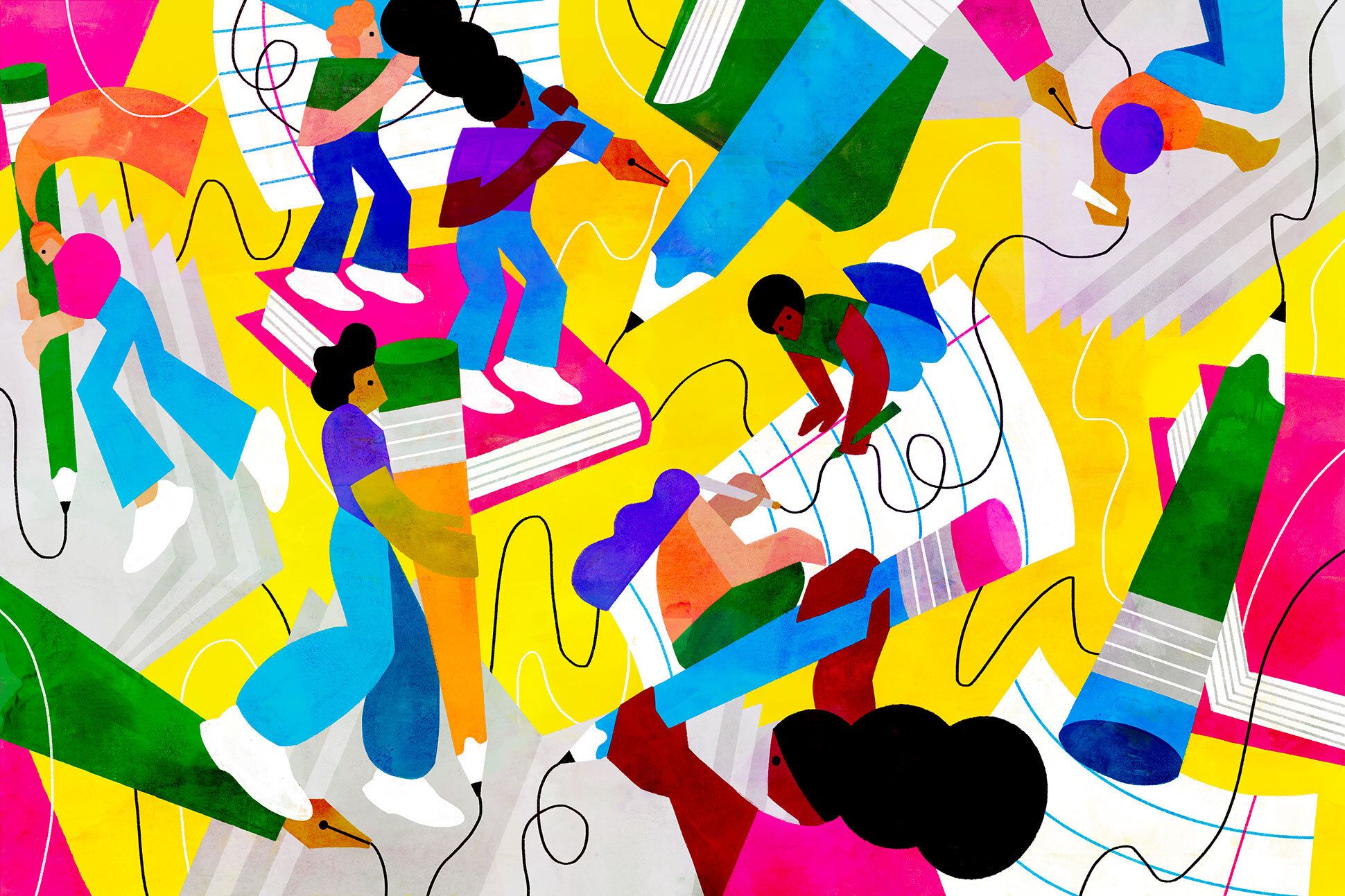Mealtime (Grades 6-8)
Intimacy, nostalgia, and loss on the table.

For today’s prompt, we’ll think about how poets have used mealtimes to tell a story about intimacy, nostalgia, and loss. First, make a list of the best meals you’ve ever shared with other people, whether for breakfast, lunch, or dinner. Then, pick one meal, and write down as many details as you can about what you ate. Then, write a list of who ate the meal with you, or who the meal reminds you of.
Meals can often be a way of talking about family or community. As you read each of the following poems, consider how the poet approaches those topics, and whether or not the reader is “invited” to the meal of the poem.
First, read Elizabeth Alexander’s Butter. Who or what does butter remind the poet of? What does it mean for the poet to be one of “Mumbo and Jumbo’s children despite/ historical revision”? What might the poet be trying to tell us about both historical and familial inheritance?
Then, read Joy Harjo’s Perhaps the World Ends Here. What does it mean for the world to begin and end at a kitchen table? What does it mean that at the kitchen table, “children are given instructions on what it means to be human.” What “terrible victories” celebrated at a kitchen table might the poet be referring to? Who is or is not invited to this kitchen table?
Finally, read Kim Addonizio’s Eating Together. What is the significance of the meal the poet describes? What might be important to the characters in the poem about eating, and about eating together?
Now, using your lists, write a poem about a memorable meal you’ve had. Will you invite the reader to the meal? Why or why not?


